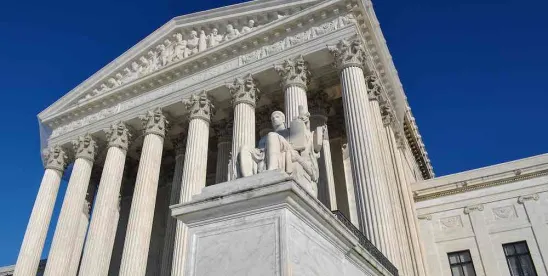The U.S. Supreme Court has held that a federal regulation can be challenged on its face long after the rule is issued by an agency. Corner Post, Inc. v. Bd. of Governors of the Federal Reserve System, No. 22-1008 (July 1, 2024). The six-year statute of limitations under the Administrative Procedure Act to challenge a final agency regulation begins when a plaintiff is injured by a final agency action, not when the regulation was issued, the Court’s majority explained.
While many were watching for the Court’s decision on “Chevron deference” in Loper Bright Enters. v. Raimondo, the Corner Post case seems to have flown under the radar. Yet, the opinion could prove just as consequential for federal agency authority.
Corner Post involved a truck stop convenience store’s time-barred attempt to challenge a 2011 Federal Reserve rule governing “interchange” fees for debit-card transactions. The applicable limitations period allowed plaintiffs only six years to challenge a new rule on its face. Corner Post could hardly bring a timely suit — it did not even exist until 2018.
The Court held that the six-year clock begins to run when a plaintiff first suffers a legal wrong because of a rule, not when the rule is originally issued. In this case, Corner Post’s clock did not start until the first time it paid the interchange fee under the Federal Reserve rule.
Before the Court’s decision, plaintiffs who did not sue within six years of an agency’s issuance of a formal rule were left with two options: (1) intentionally violate the rule, prompting an enforcement action, then challenge the rule “as applied” to the plaintiff; or (2) petition the agency to revise or rescind the rule and appeal the agency’s decision when it refused to do so. Corner Post, however, presents an opportunity to file new facial challenges to longstanding agency regulations. The decision in Loper Bright, which abandoned the principle that courts must defer to federal agencies, ensures that when courts do revisit these regulations, they will review them with greater scrutiny over whether a rule conforms to the statute it purports to interpret.





 />i
/>i

